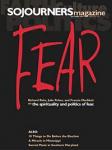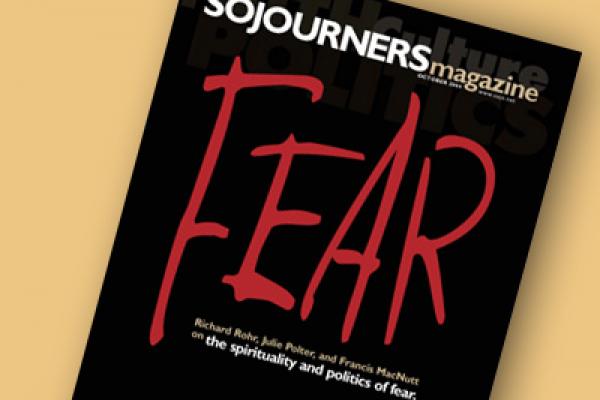Especially in a contentious election year, I find it difficult not to be skeptical when the Department of Homeland Security issues terror alerts. When the alert level was raised just after the Democratic Convention, for example, the specific details seemed convincing. But when the cited sources and vintage of the intelligence kept shifting, you didn’t have to be a conspiracy theorist to question the administration’s motives.
And yet, terrorists are real and they want to attack me. Or you. Or Capitol Hill legislators. Or Midwestern mall shoppers. Nothing personal: Terrorists just need stage props. For the most part they don’t care about who dies, specifically. What’s important is the theatrical power of violent, unpredictable deaths, in a symbolic setting if possible—and the reverberations of notoriety, panic, revenge, suspicion, and repression that inevitably follow.
Sept. 11 strained the body politic. Traumatized, our democracy—grieving, harried, and surveilled—was dragged to brutal places or ran there headlong, raging. Our country’s belligerence and abiding anxiety are both part of the terrorist script. Our leaders don’t need to manufacture or manipulate the chaos for Machiavellian ends: They are propelled into chaos as haplessly as the rest of us, at least initially.
But according to some political theorists, fear of all sorts does serve our government, regardless of who’s in power. As Corey Robin, author of the new book Fear: The History of a Political Idea, told New York magazine recently, "When you no longer believe government is the source of goodness or wisdom, the one argument Thomas Hobbes thought everyone had to agree on was that government protects you. And so you had to educate people to be afraid, because they’re not automatically afraid."
In the name of protection, our government exerts a certain amount of control over us. When fear is front-page news, the sacrifices we make of our citizen birthrights can become drastic, often with relatively little government pressure. The cycle of fear-protection-repression-submission might simply be a law of political physics.
It’s hard to sort out whether the media are reporting threats straight or hyping them for ratings. We fill the vacuum of genuine analysis or investigation with Animal Planet sharks gliding through our dreams, Weather Channel tornadoes tearing into our living rooms, Fear Factor churning out faux dread and real nausea. The profound, the trivial, the real, and the illusory have traded costumes so often we can hardly tell which is which.
Researchers have found that people’s reactions to different leadership styles and presidential candidates are sharply affected by fear-related thoughts (especially fear of death). In one study, slated for September’s Personality and Social Psychology Bulletin, volunteers with varied political leanings, liberal to conservative, increased their approval of President Bush when asked to think about the Sept. 11 attacks. When under perceived threat, human instinct is to transfer power and belief to an authority figure, especially one positioned as a heroic leader battling evil on behalf of the citizenry.
The researchers conclude that citizens need to be aware of overt and covert psychological pressures in political campaigns, so that they base choices on rational evaluation rather than emotional cues. The power of fear to skew a person’s choices has been shown to diminish when fears are acknowledged and confronted consciously and directly.
In our current muddle of distraction, perhaps "awareness" is more attainable than actual rationality. Around Washington, D.C., signs remind us to be vigilant and notice "any suspicious activity." Such attentiveness is key to our political lives as well. If we are to be players in political theater, let us be conscious ones—awake and alive, claiming our responsibilities as citizens and moral agents.
Julie Polter is an associate editor of Sojourners.

Got something to say about what you're reading? We value your feedback!
